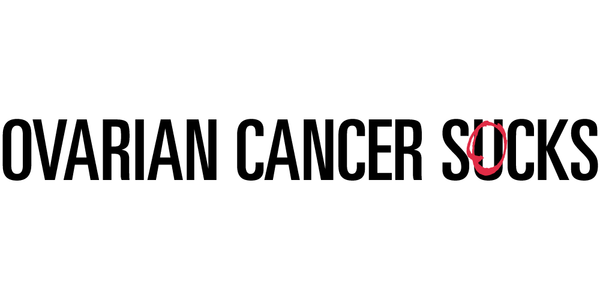
Siobhan’s greatest regret was that she wouldn’t get to see her niece and nephew, Grace and Tom, grow and flourish into adulthood and share all their achievements and milestones. A tragic, final reminder of the wider human cost of this disease.
Dr Siobhan O’Sullivan (pictured) was diagnosed with stage 3 high grade serous ovarian cancer in 2020, at the age of 46. The disease caused her premature passing on Saturday 17th June, 2023.
Following her diagnosis, Siobhan experienced near constant treatment that took a huge toll on her mind and body. Devastatingly, Siobhan was told that her cancer was chemo-resistant almost immediately and that she was unlikely to survive beyond 18 months. That she survived almost three years from diagnosis and was able to make an enormous impact in that time is a tribute to the strength of her spirit.
Siobhan was a fierce advocate for future generations of women and girls. She was determined that they would have a better prognosis than she did. Siobhan was adamant that "an ovarian cancer diagnosis should not be a death sentence" in the era of rapid medical advancement.
Siobhan was a talented academic and researcher. She deeply understood the need for more investment in ovarian cancer research and proceeded to advocate for it. She joined Ovarian Cancer Research foundation (OCRF) representatives on advocacy trips to Canberra, wrote to her local MP, penned opinion pieces and participated in any campaigns that would extend the reach of her message, including the OCRF’s Georg Jensen campaign. Above all, Siobhan was passionate about leaving a legacy and encouraging others to do so, knowing that she would not be alive to see change.
Siobhan’s greatest regret was that she wouldn’t get to see her niece and nephew, Grace and Tom, grow and flourish into adulthood and to be able to share all their achievements and milestones. A tragic, final reminder of the wider human cost of this disease.
Rest in peace, Siobhan.
The following article was written by Siobhan shortly before her passing. This is her story.
In the dead of night, August 3, 2020, two nurses appeared beside my hospital bed, wheelchair by their side. After a hellish 15 hours in one of Sydney’s busy emergency rooms, I was finally being taken to a ward. The nurses pushed me through a series of tunnels deep underground. We then took a lift, and eventually emerged in one of Australia’s leading cancer hospitals – Chris O’Brien Lifehouse.
Just 10 hours earlier the emergency room doctor had told me that the reason I was feeling ‘out of sorts’ and experiencing persistent bloating was due to ovarian cancer. I knew nothing about ovarian cancer, but I was about to learn quickly.
In Australia, most women with ovarian cancer are given four rounds of chemo. That is followed by surgery to remove all visible cancer. Then two more rounds of chemo to kill any remaining microscopic cells. My family and I quickly realised that not all women make it to surgery. At the start of my treatment, it was all about getting me to surgery. That is where we focused our hope.
I did get there. Referred to as ‘de-bulking’, my operation lasted more than seven hours. Many women then experience a period of remission.
Ovarian cancer has an 8o% recurrence rate, meaning that remission may not last.
But in my case, luck was in short supply. Immediately after I had completed the first line of treatment, I was sent for a scan. The cancer had spread to my peritoneum – a layer of film that holds organs in place in the abdomen.
I immediately moved to a second chemo combination. Once that line of treatment was completed, my doctors found that the cancer had spread again. This time tumours were found in my chest, pushing up against vital arteries.
Fearing that I was fast running out of options, my oncologist secured me a place on a drug trial. Initially, the trial appeared to be going well, which is why I was devastated when just a week before Christmas 2021 I was told that the cancer had spread, this time to my liver. I was off the drug trial. And, perhaps more importantly, the Grim Reaper who had been stalking me for 18 months, was gaining ground.
In early 2022, I commenced the final chemo combination available to women with ovarian cancer. At the conclusion of that treatment, a repeat scan was performed. The scan was to assess how the cancer had responded to the treatment. A reduction in the size of the tumours was the hope. Stabilisation of the disease would have been a reasonable outcome. I was devastated to learn that while I was undergoing two chemo infusions every three weeks, the cancer continued to spread. The final chemo option had been a failure.
This year, 1800 Australians will be diagnosed with ovarian cancer. In five years time, only 864 of them will still be alive.
I am 47 years old. I have ovarian cancer lesions in my chest, abdomen and liver. The cancer is going to kill me and there is nothing anybody can do about it. The only remaining questions are; when will ovarian cancer take my life? And how much will I suffer?
In under two years I went from being the picture of health, to being ill with ovarian cancer, to being out of treatment options and terminal. The same can happen to anybody with ovaries.
The need is urgent. The time is now. Support Ovarian Cancer Socks to invest in critical cancer research so that diagnosis is no longer a death sentence for those who develop the disease.
